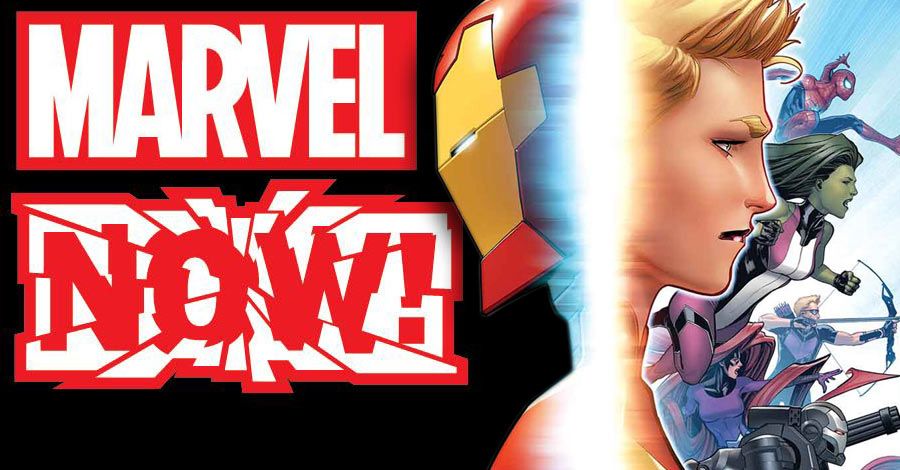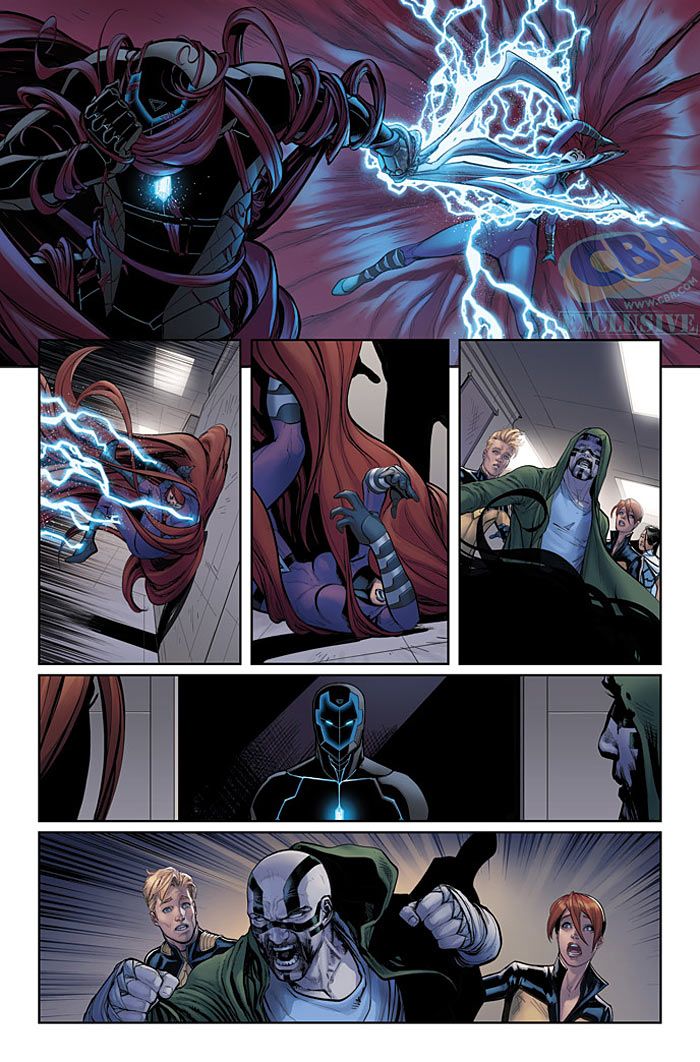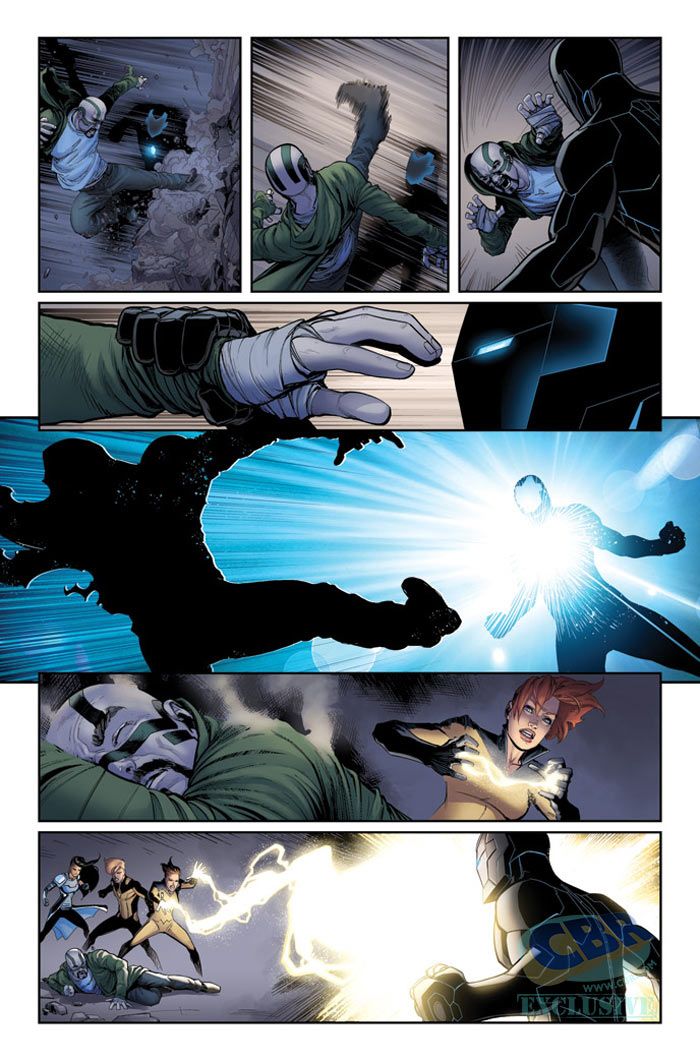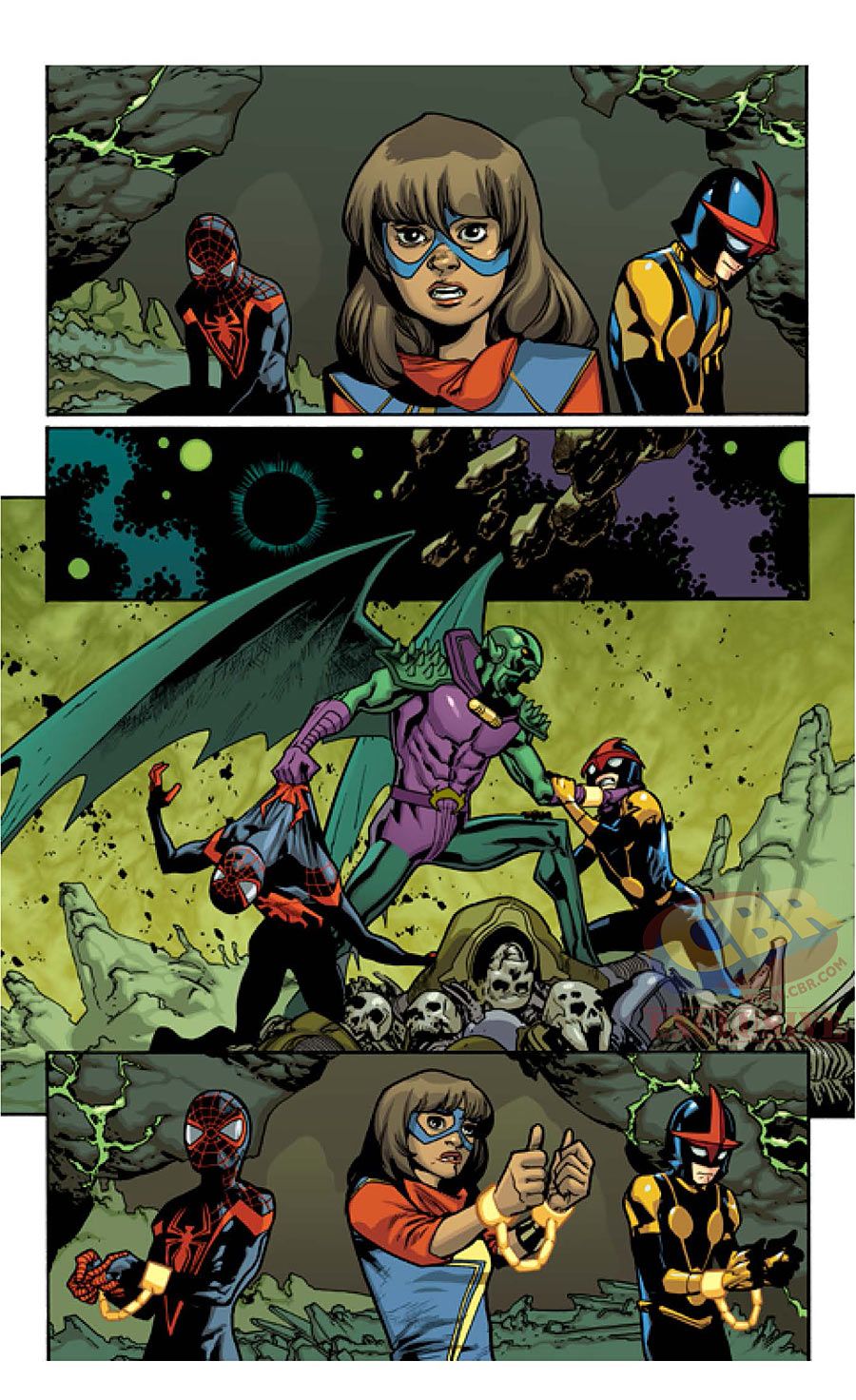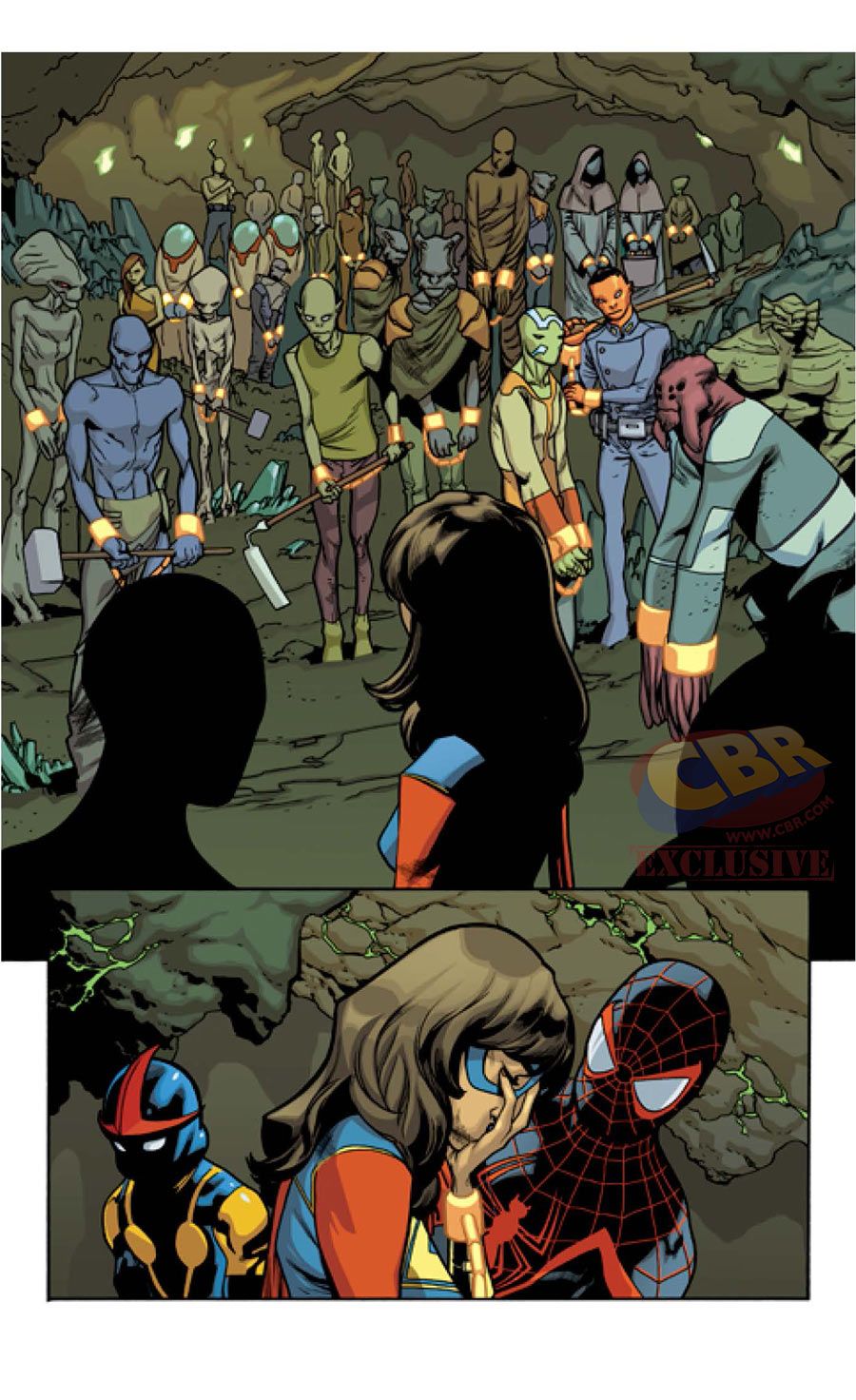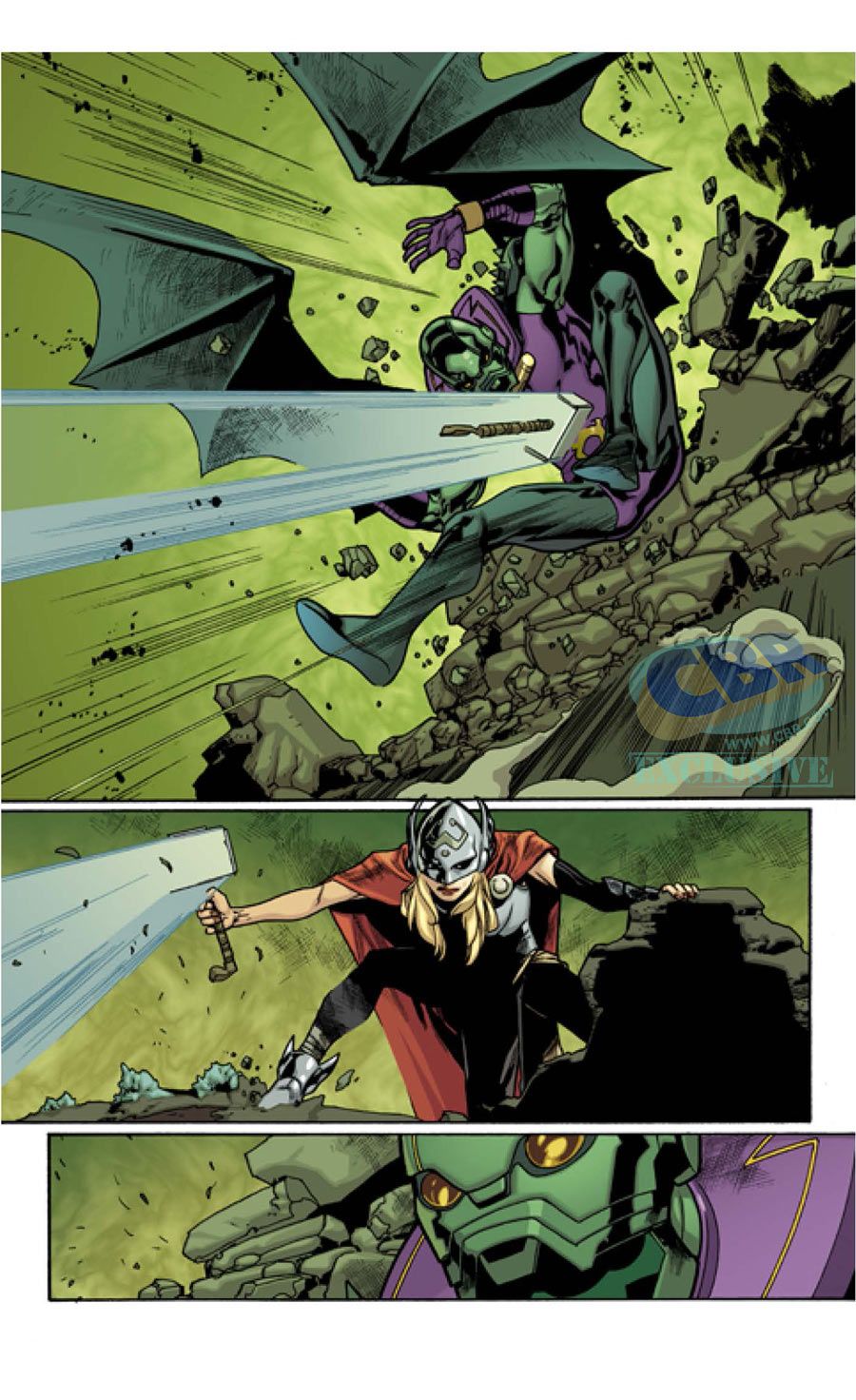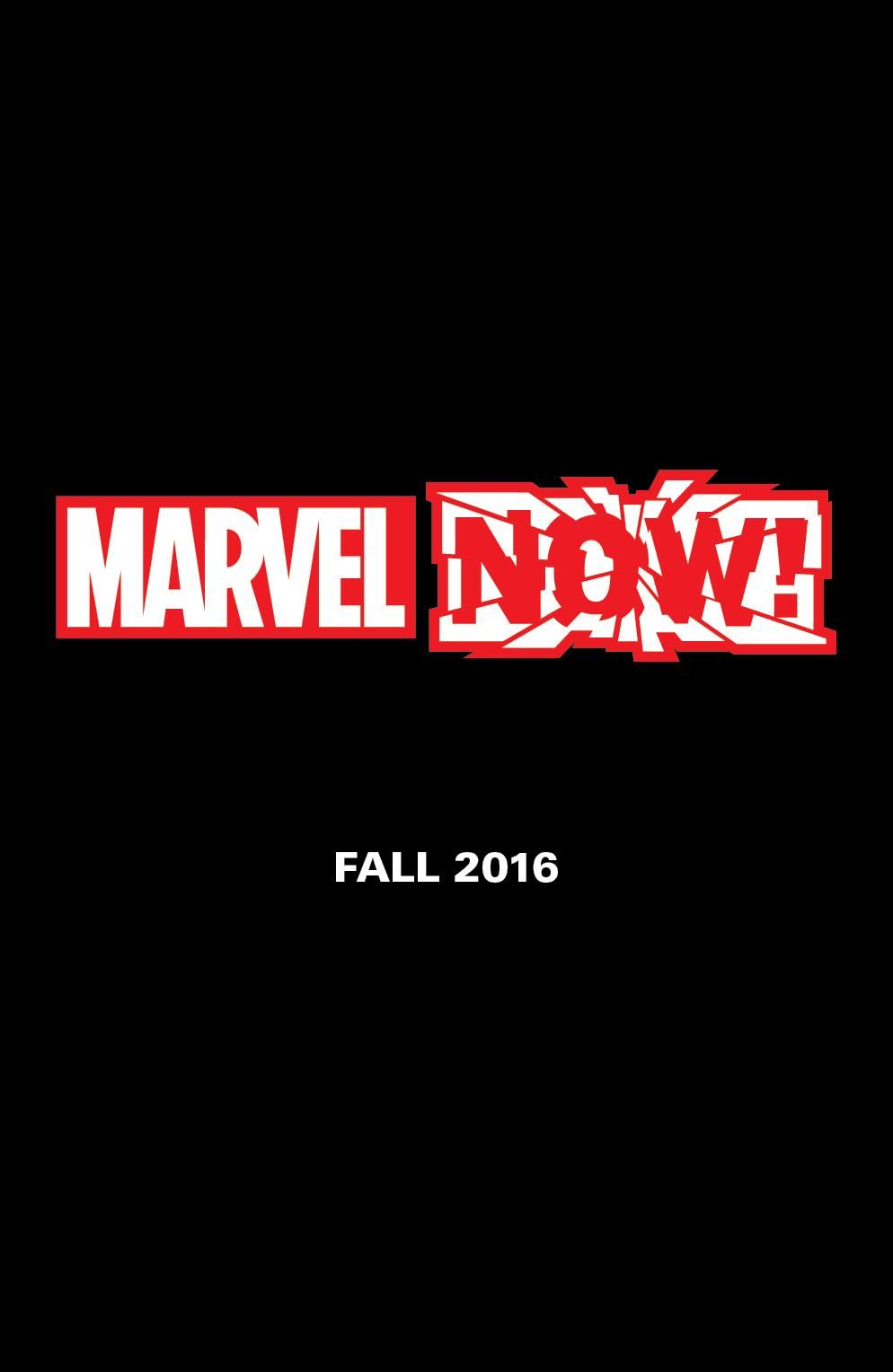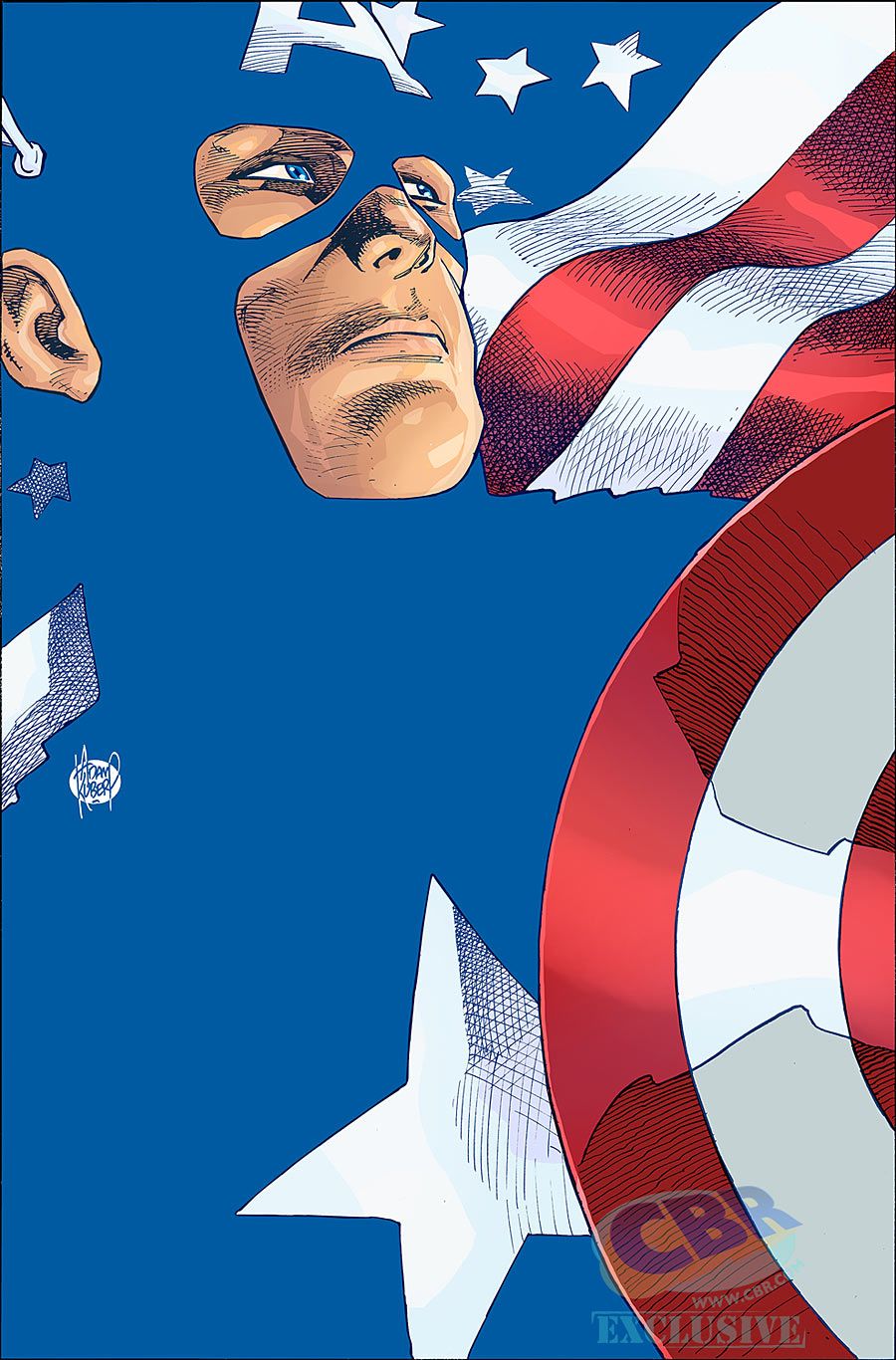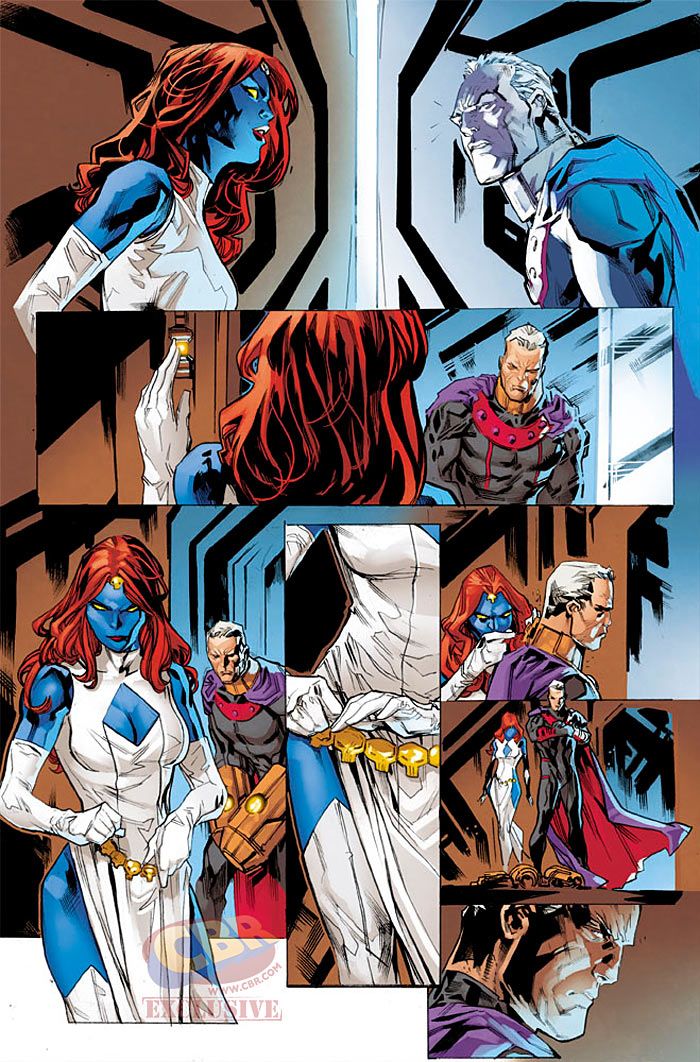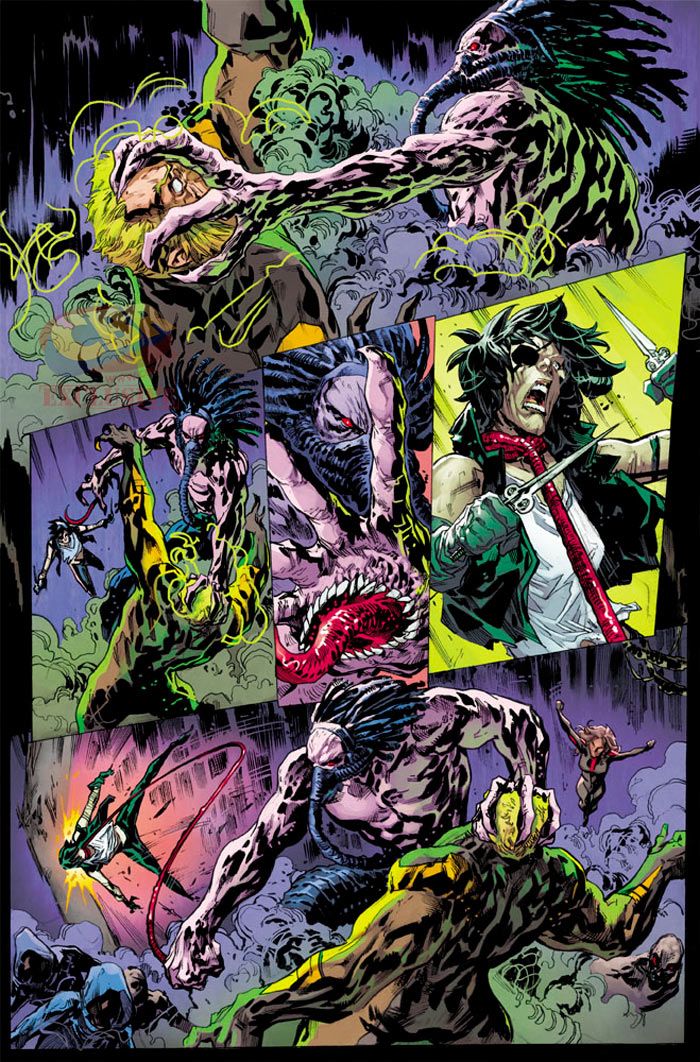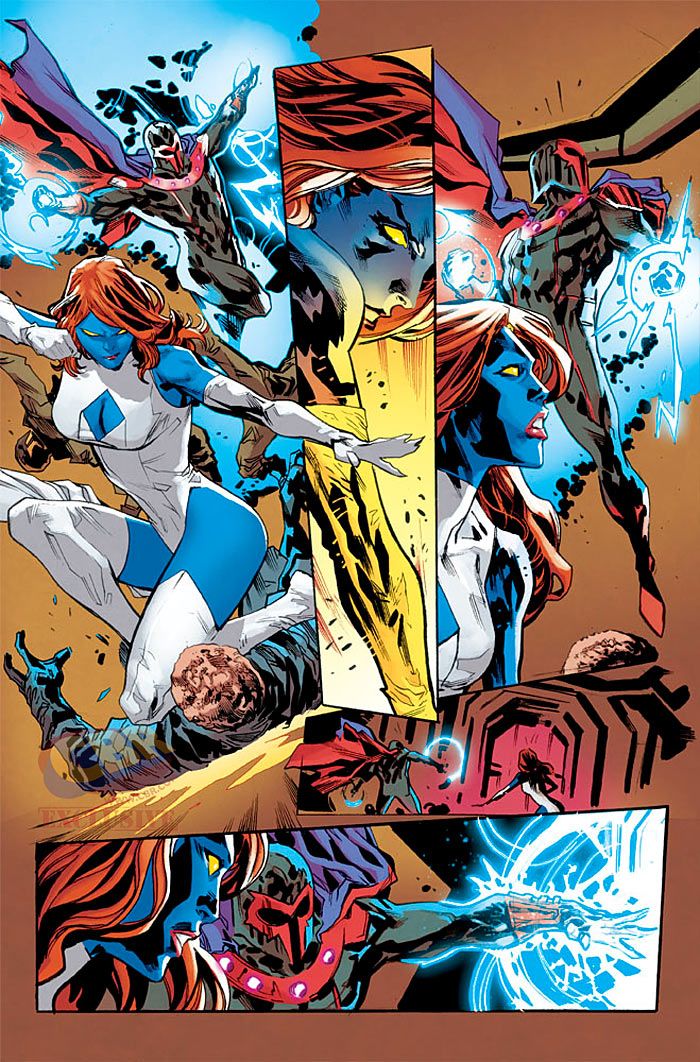SPOILER WARNING: This article contains spoilers for "Civil War II" #1, on sale now.
Marvel Comics Editor-in-Chief Axel Alonso developing storylines as envisioned by Skottie Young
Fridays on CBR mean Axel's In Charge.
Welcome to MARVEL A-I-C: AXEL-IN-CHARGE, CBR's regular interview feature with Marvel Comics Editor-in-Chief Axel Alonso!
An editor with years of experience in comics receiving both critical acclaim and best-selling status, Alonso stepped into the chair at the top of Marvel's Editorial department and since then has been working to bring his signature stylings to the entire Marvel U. Anchored by regular question and answer rounds with the denizens of the CBR Community, each week Alonso will shake things up with special guest stars, exclusive art reveals and more!
RELATED: Marvel's "Civil War II" #1 Reveals One Major Casualty -- And Maybe a Second
After one week away from the column -- due to the arrival of a new addition in the Alonso family -- the E-i-C discusses the freshly released "Civil War II" #1 by Brian Michael Bendis and David Marquez, and how the tense interplay between characters accounted for the biggest moments of the book -- even more than the large-scale superhero action. Alonso also addressed the major casualty of the early "Civil War II" happenings, specifically the death of James "Rhodey" Rhodes, the armored superhero War Machine. It's a big death for a prominent character made much more famous due to the Marvel Studios films, but it's also the demise of one of relatively few Black superheroes on Marvel's roster. Alonso addresses the situation, and the motivation for the storyline development. Additionally, Alonso talks the new Marvel NOW! initiative coming this fall, post-"Civil War II," and why the publisher chose to use the name first seen in 2012 following "Avengers vs. X-Men."
Albert Ching: Axel, you must be feeling great this week, between the new arrival and the Warriors pulling it off against the Thunder.
Axel Alonso: I watched Game 6 and Game 7 with my newborn daughter fast sleep on my chest. Doesn't get better than that. [Laughs]
It just feels like there's no way that the actual NBA Finals could be as good as the Western Conference Finals was.
Alonso: Such an incredible series. Under any other circumstances, I would have been rooting for the Thunder, because I love [Kevin] Durant. But he was playing against the Warriors, so...
Moving to this week's "Civil War II" #1. As big of a story as it is, it feels more grounded in its own way than other recent Marvel events -- like last year's "Secret Wars," which was literally universes colliding. What did you personally like about this first issue and what Bendis and Marquez did to kick off the main series?
Alonso: There's no absence of pyrotechnics and spectacle in the first issue, but I think the biggest moments come in dialogue. This is a story that's driven by character's consciences. At the core of this story isn't a villain to be thwarted, but a new development that creates new opportunity and an ideological divide in the Marvel Universe. As in the original "Civil War," readers will have no choice but to take a side, and there will be developments in the story that will challenge their convictions. If you've already joined "Team Tony" or "Team Carol," you are in for a ride. This story touches upon, metaphorically, things that are going on in our society right now, and it addresses more than one; the tie-in series open up a Pandora's Box of questions not raised in the core series.
I also wanted to ask about the big moment from the issue -- the confirmation of the death of James Rhodes, War Machine. He's not only a very prominent character at this point, but one of the most prominent Black superheroes at Marvel and in comics as a whole; specifically African-American superheroes. What went into that decision?
Alonso: This was a hard decision. Brian was walking us through his story notes at a retreat, and he needed something to happen at the end of issue #1 that would ratchet up the stakes. That's where the scene we see the aftershocks of the assault on Thanos comes in. We started to workshop a scene that had a group of heroes, strong in their convictions, go out on a mission to stop one of Ulysses' predictions, and we realized that for the scene to have weight, not all of them should come home. It was gut-check time.
After we'd assembled the team, it was Brian who said it made most sense for War Machine to be the casualty of that operation, and the discussion began. We examined it from all angles, the more and more we talked about it, the more we saw that the death of Rhodey -- given his profile in our universe, the fact that he was strongly aligned with Carol's position in regards to Ulysses, and his relationship with both Carol and Tony -- would have the most impact, and cast the broadest shadow over everything that happened after. Brian also felt that Rhodey's death would create an additional dynamic in the story because it would unhinge both Tony and Carol, and bring an emotional component to fuel their passion and, at times, overwhelm their reason.
Let me be very clear: We carefully considered the fact if we were going to kill Rhodey, a beloved African-American character, at a time when we are taking great pains to diversify our universe -- with characters like Black Panther, Miles Morales, Sam Wilson, Kamala Khan, Amadeus Cho, Robbie Reyes, Moon Girl and more playing prominent roles -- we needed to have a long-term plan that proved we intend to stay on that course, and we needed to be able to unveil parts of that plan quickly. Which we will.
That's something to keep an eye on, as is the news from last week that coming after "Civil War II" is another Marvel NOW! publishing initiative -- presumably new series, relaunches, that kind of thing. People are curious about Marvel going back to that name, as most still remember Marvel NOW! from 2012. What motivating revisiting that name once again?
Alonso: We just think it resonates -- especially with the distressed logo treatment that adds food for thought. "Civil War II" will create launch pad for new characters to emerge, old characters to step into the spotlight, new teams to form, and for characters to rise to new heights and fall to new depths. [The original] "Civil War" ended with huge ramifications for its key players -- Cap and Iron Man. You're going to see the same here.
This feels like further steps toward what you've been talking about -- more of a seasonal mode for comics publishing. Do you see the new Marvel NOW! as Marvel headed even more into that direction?
Alonso: We live in an era where comic books compete with so many other forms of entertainment, where there are far more comic books being published, and we need to use every opportunity to excite people about what we're doing. When you have a new creative team bringing new energy to a series, like Ta-Nehisi Coates and Brian Stelfreeze on "Black Panther," or a new story hook that turns a series upside-down, like what Dan Slott did with the latest volume of "Amazing Spider-Man," you are providing a jumping-on point for new readers, and you need to do everything to treat it as such. So yes, we are embracing the seasonal mode that allows for both long-term continuity and rapid change. That said, we treat every issue -- whether it's #36 or #1 -- as a continuation of a story we've been telling for decades. Our ultimate goal is to create a diverse line that appeals to as many readers as possible, and helps grow the comic book audience. The Marvel NOW! banner is our way of telling retailers and readers that a line of exciting offering are headed their way.
Have some questions for Marvel's AXEL-IN-CHARGE? Please visit the AXEL-IN-CHARGE Q&A thread in CBR's Marvel Comics community. It's the dedicated thread that CBR will pull questions for next week's installment of our weekly fan-supported question-and-answer column! Do it to it!

